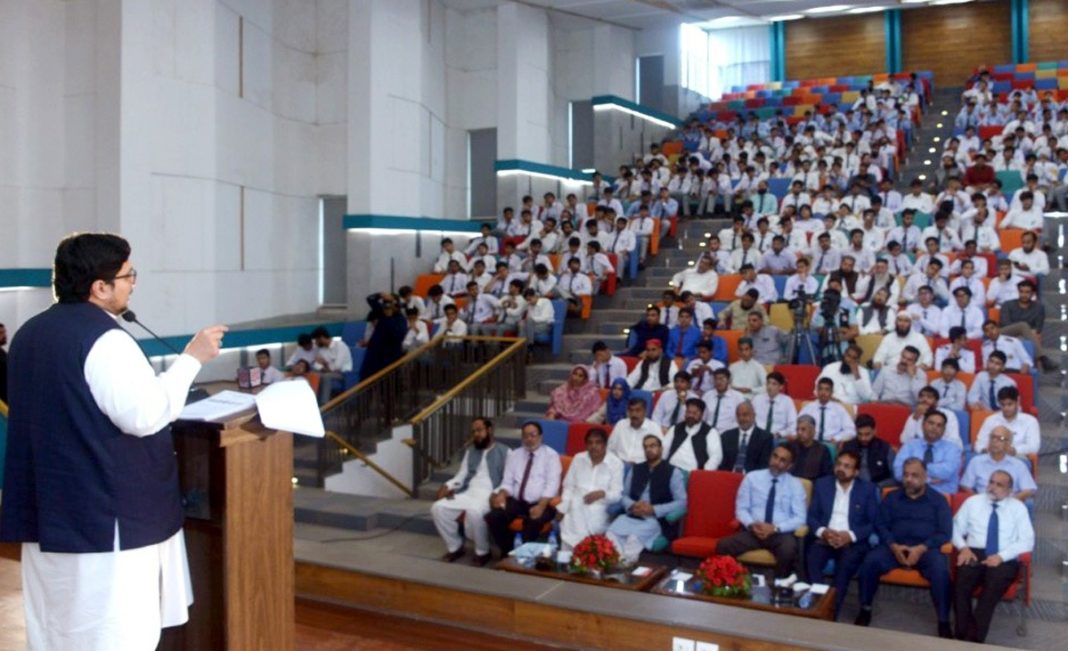Five judges of Islamabad High Court have approached the Supreme Court against the powers and actions of the Chief Justice of Islamabad High Court.
Justice Mohsin Akhtar Kayani, Justice Babar Sattar, Justice Tariq Mahmood Jahangiri, Justice Saman Rifaat and Justice Ijaz Ishaq Khan have filed separate petitions in the Supreme Court.
So far, Private TV has received copies of the petitions of Justice Mohsin Akhtar Kayani, Justice Babar Sattar, Justice Tariq Jahangiri and Justice Ijaz Khan, all of which have made the same demand.
In the petitions, the judges have requested the Supreme Court that administrative powers cannot be used to weaken or override the judicial powers of High Court judges.
It was further submitted that the Chief Justice of the High Court is not empowered to constitute new benches or transfer cases once a case has been assigned to a bench.
The petitions also stated that the Chief Justice cannot arbitrarily remove available judges from the list nor can he exercise this power to remove judges from judicial duties.
The Supreme Court was also told that the constitution of benches, transfer of cases and issuance of lists can be done only in accordance with the rules framed with the approval of all the judges of the High Court, which are adopted under Articles 202 and 192(1) of the Constitution.
The petitioners further submitted that the decision-making regarding the constitution of benches, roster High Court Rules and transfer of cases cannot be solely within the power of the Chief Justice and the principle of Master of the Roster has been abolished in the judgments of the Supreme Court.
The petitions also said that the administrative committees constituted through the notifications issued on February 3 and July 15 and their actions were illegal, void and voidable.
The court was urged to declare these notifications and all the actions of the committees illegal.
It was further said that the approval of the Islamabad High Court Practice and Procedure Rules 2025 by the illegally constituted administrative committee and the issuance of the notification without the prior approval of the High Court is a violation of Articles 192(1) and 202 of the Constitution, and its ratification in September is also illegal and void.
The judges prayed that the Supreme Court should direct the Islamabad High Court to exercise effective supervision and oversight over the district judiciary, as enshrined in Article 203 of the Constitution, so that each High Court can supervise and control its subordinate courts.
The petitioner requested the Supreme Court to declare that the High Court cannot issue any writ under Article 199 of the Constitution, which deals with the jurisdiction of the High Court.
He further said that the Division Bench of the High Court neither has jurisdiction to appeal against the interim orders of a single bench nor can it exercise such control over the proceedings of a single bench as if it were a lower court or tribunal.
An interim order refers to a temporary decision given in a pending case.
The petitioners told the Supreme Court that a High Court judge can be restrained from performing judicial functions only under Article 209 and it is not right to file a writ of quo warranto to remove a judge from office.
Article 209 empowers the Supreme Judicial Council under the Constitution to investigate the competence and conduct of the judges of the Supreme Court and the High Court.
The petitioners concluded their statement by requesting the Supreme Court to grant any other relief deemed appropriate in the circumstances of the case.
Justice Tariq Mahmood Jahangiri’s appeal
Justice Tariq Mahmood Jahangiri challenged the decision of the Islamabad High Court in the Supreme Court on the fake degree case.
Justice Tariq Mahmood Jahangiri requested the Supreme Court to suspend the order of the Islamabad High Court, the judge cannot be stopped from performing his duties, the rights acquired under Article 10-A were violated.
Justice Tariq Mahmood Jahangiri’s appeal was allotted number 23409 in the Supreme Court.




